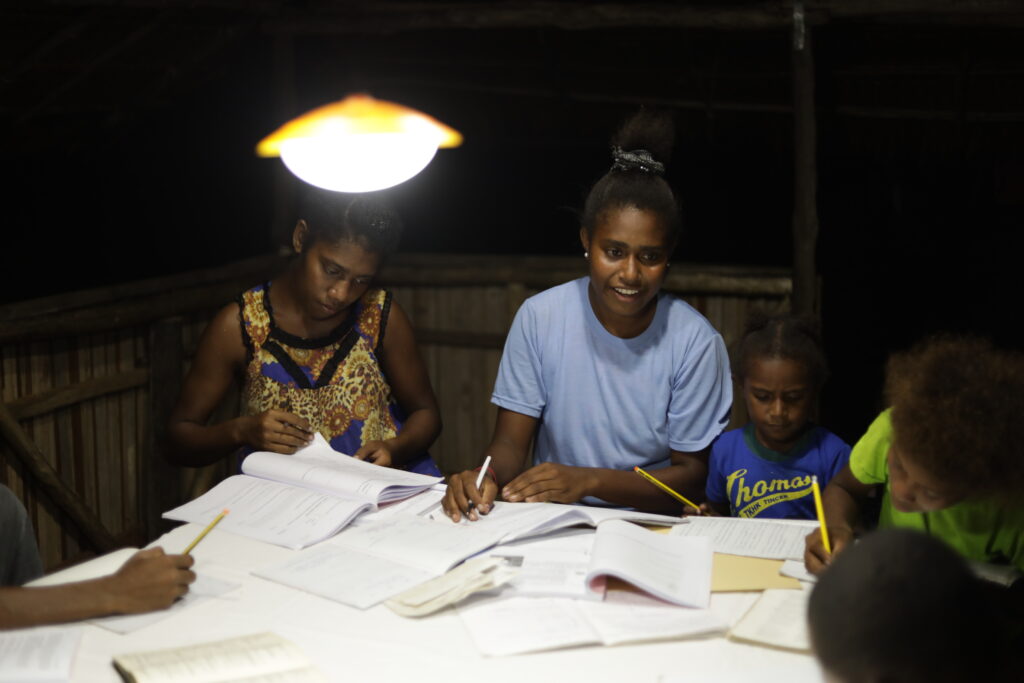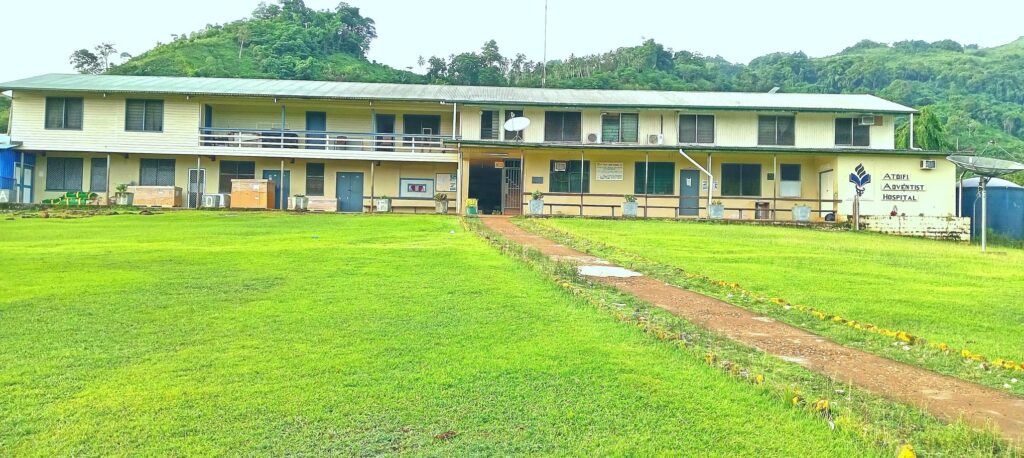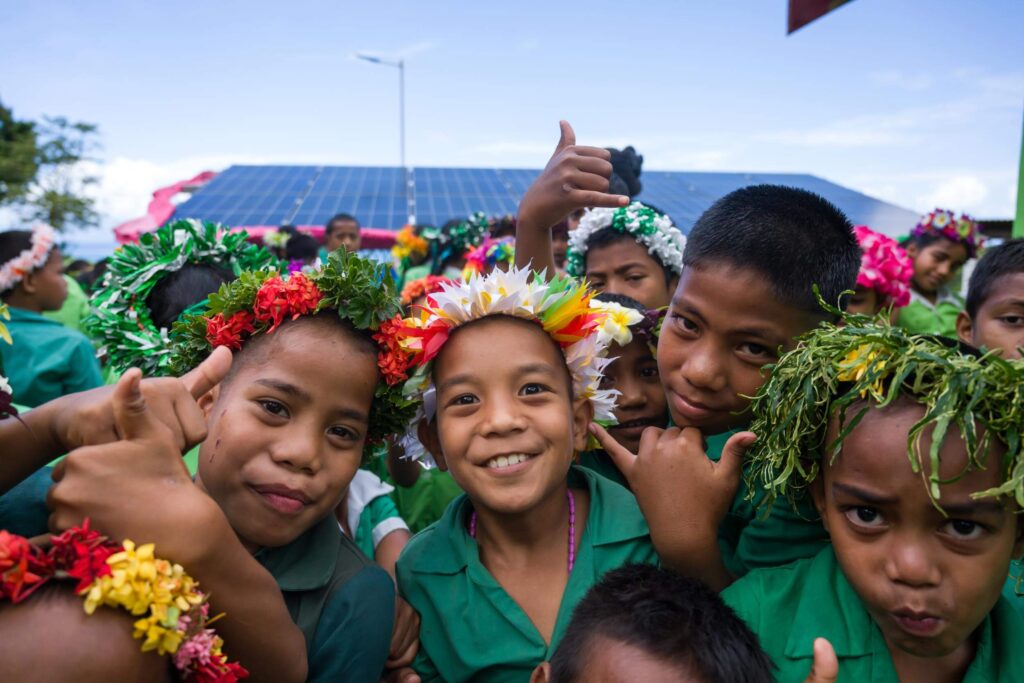From the highlands of Papua New Guinea to the outer islands of Kiribati, the Pacific is a region defined by its vast ocean, strong communities and deep connection to nature.
For generations, our Blue Pacific family has lived in harmony with the sea. But today, that ocean is rising. Climate change is the single greatest threat to our shared home, reshaping lives, livelihoods and ecosystems across the region.
Australia and the Pacific stand together to protect our shared home and future. Through Australian Government partnerships under REnew Pacific and its earlier Business Partnerships Platform (BPP) pilots, local communities, governments and businesses are building climate resilience, powering health centres, schools, water systems and livelihoods in some of the region’s most remote off-grid communities with clean, renewable energy.
Since the first BPP pilots in 2024 to now – just two weeks out from celebrating REnew Pacific’s one-year anniversary – 19 remarkable projects have been transforming lives across our region’s most remote off-grid communities.
Together, they are delivering clean, reliable energy to more than 130 schools, health centres and communities across six Pacific and Timor-Leste countries, reaching over 230,000 people – and we have only just begun.
As COP30 in Belém fast approaches, we are celebrating the partnerships powering climate leadership across our vast region, uniting Australia and our Pacific family in shared purpose and progress.
In Vanuatu, ActionAid Australia, ActionAid Vanuatu, the Women I Tok Tok Tugeta (WITTT) Network and PowerWells are strengthening women’s control and access to clean, affordable energy. The University of New South Wales, working with the Vanuatu Disability Promotion and Advocacy Association, the Vanuatu Institute of Technology and the Vanuatu Department of Energy, is addressing solar e-waste through a circular economy approach that builds local skills and sustainable solutions. Respond Global, in partnership with the Vanuatu National Green Energy Fund (NGEF), is improving healthcare delivery in remote areas through off-grid renewable energy and training for local technicians. The Global Green Growth Institute (GGGI), also working with NGEF, is supporting solar-powered water systems that strengthen community resilience and create green jobs across the islands.
In Kiribati, Action on Poverty and the Foundation of the Peoples of the South Pacific are empowering local women to expand access to clean energy and safe water, improving health, safety and livelihoods across remote island communities.
In Papua New Guinea, KTF (Kokoda Track Foundation) is expanding its successful pilot under the BPP, which powered Kokoda College with clean energy and digital learning infrastructure. Through REnew Pacific’s first PNG project, KTF will now be delivering new solar mini-grids to remote communities in Oro and Central Provinces, powering classrooms, digital learning and health services at Mt Koiari FODE Centre and the Sanananda Aid Post. Their work will improve access to education and healthcare in some of Papua New Guinea’s most remote off-grid areas. Caritas Australia and Catholic Church Health Services are improving energy access for essential healthcare in New Ireland Province, ensuring clinics can deliver life-saving care safely and reliably. Sola PayGo, in partnership with MiBank, is creating jobs and livelihoods through renewable energy.
In the Solomon Islands, Superfly is leading a new REnew Pacific project to install solar hybrid systems at Atoifi Adventist Hospital, Goldie College and Sir Dudley Tuti College, delivering reliable clean power for healthcare and education across Malaita, Western and Isabel provinces. Superfly has also strengthened energy security at the Good Samaritan Hospital in Tetere and has partnered with Save the Children Solomon Islands and the Mai-Ma’asina Green Belt to expand solar access in Malaita communities. Archipelago Energy is securing renewable power on Savo Island, while Pelena is powering the Vavanga community with micro-hydro.
In Fiji, Its Time Foundation is powering classrooms and computer labs in remote schools, while the GGGI is delivering hybrid energy systems that strengthen water access and community resilience across maritime islands.
And in Timor-Leste, Engineers Without Borders Australia, Raw Material and Mara Mresa are catalysing renewable energy for coffee cooperatives in off-grid communities, while MEA Power Up and Master Electricians Australia are improving health infrastructure in Cova-Lima Province with new solar systems at clinics and water pumping sites.
Each project tells a story of partnership, resilience and shared purpose, with communities powering a sustainable and inclusive future for our Blue Pacific. All are made possible through the Pacific Climate Infrastructure Financing Partnership (PCIFP), a $350 million initiative delivered by the Australian Government’s Australian Infrastructure Financing Facility for the Pacific (AIFFP) and implemented by Palladium.
Follow along as we get ever closer to COP30 on the road to Belém.



